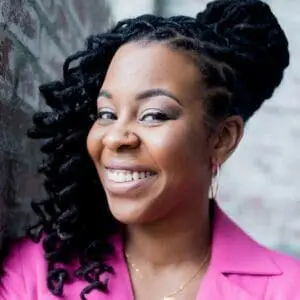Therapists have been through a lot the last few years.
The pandemic, extended grief, social injustices, and kids returning to school are just a few of the collective experiences we’ve all had to work through. We’ve helped our clients process their emotions while finding—or trying to find—a space where we can do the same.
Practicing What We Preach
When I first started my private practice over seven years ago, I composed and committed to a list of boundaries differentiating my work and home responsibilities. I was resolute in my determination to separate my personal life from my professional life—you know, just like we were told to do in graduate school.
It started off well. Like really well. I would leave my office by 5:00 p.m. and transition to the role of mommy and wife by 5:30 p.m. When the needs got bigger and heavier, when people would call and share how they’d been on the hunt for a Black clinician or how they’d called so many therapists already, I felt obligated to take them on as clients. So I started adjusting to meet these new needs, coming early, staying late, and offering weekend hours. I made adjustments that some would say compromised me and the boundaries that I’d so clearly created to preserve my mental and emotional wellbeing. I shifted so much, in fact, that my boundaries became virtually nonexistent. And though I became increasingly overwhelmed, I continued to show up day after day. After all, my job was to help people in need.
Having a network of other clinicians with a variety of skillsets has always had a big impact on my life and practice. So, to meet the growing needs of our clients, my colleagues and I continued to staff and discuss cases. We went to trainings to stay informed and connected. When we got together in groups, we discussed self-care, but only cursorily. We never discussed it deeply, nor did we hold each other accountable to the measures we’d agreed were important.
While we continuously communicated the significance of self-care with our clients, even asking them to share personal examples so that we could assess whether they had an accurate understanding of how to practice it, when it came to my colleagues and me practicing self-care, we were missing the mark.
Clearly, this wasn’t due to a lack of awareness on our part, so what was the culprit? Why weren’t we intentional about our own self-care when we knew the implications of neglecting them? As I followed this train of thought, a final question came up for me: As a therapist, what does it look like for us to not only take care of ourselves, but seek professional help?
If you live in a rural area or, like me, you’re one of only a few Black therapists in your community, the expectation is that you are always on. Let me share an example.
Not long ago, I went to pick up a prescription from our local pharmacy for my son, who had an ear infection, thinking it would be a quick in-and-out trip. However, the pharmacist, who I knew well and who knew I was a therapist, saw me and came out from behind the counter to get advice about caring for his aging mother. After telling him multiple times that I needed to leave because I had places to be—I even gave him the eye—I had to walk away for him to see that I was serious.
Imagine having this experience everywhere you go, multiple times a day. I’m sure we can all recall times when friends or loved ones sought us out for clinical advice when we weren’t at work. You know, the ones who say, “Let me know when you’re free. I want your advice on something,” and then proceed to offer an earful about whatever personal situation seems to be troubling them.
Not only are incidents like these completely inappropriate, but they also have the potential to put others at risk for secondary trauma. It’s also unethical for therapists to provide clinical advice in settings that aren’t private. These kinds of interactions increase the probability of burnout and compassion fatigue—occupational hazards that are already inherent in clinical work—which can negatively impact us and the clients we serve. This reality underscores the need for us to set boundaries and take care of ourselves outside of work.
When therapists do experience extreme burnout, compassion fatigue, or other consequences that compromise our health and work because of blurred boundaries, adjustments need to be made to prioritize self-care. This might mean seeing a therapist yourself, or even seeking advice from a primary care physician, as some mental and emotional issues warrant medical intervention. As therapists, we must utilize the same skills we impart to our clients and practice what we preach.
When Helping Professionals Need Help
If you’re experiencing emotional distress, difficulty sleeping, or trouble separating work from home, then it may be time to seek professional help, and there’s absolutely nothing wrong with that. Therapists are humans with real feelings. We tell our clients that they don’t have to do life alone, and we don’t either. Therapists and other helping professionals often have faulty expectations that they can fix their own problems because they have the education and background to help others, but I know from personal experience that that’s not always the case.
I remember getting a call a few years ago at work from family, notifying me that my cousin, who I looked up to immensely, was being placed in hospice. The news broke me, but I went right back to my office because, in 20 minutes, my next client would be walking through the door. In retrospect, I know I should’ve cancelled that session, but in that moment, despite being emotionally fraught, I decided to push through. For the rest of the week, I felt like I was just going through the motions.
After my cousin’s passing, my husband suggested that I go and see somebody, something I hadn’t considered before he mentioned it. I had taken some time off, but transitioning back to work and hearing stories of others’ trauma became very overwhelming for me. I had trouble sleeping, and constantly felt anxious. It wasn’t until I started seeing a therapist that I was able to process my emotions and get back to a level of awareness that empowered me to show up as my best self. Now, I make a point of checking in with my therapist at least once a month, just for maintenance purposes.
As therapists, it’s so important for us to be in tune with ourselves or have colleagues or family members who can call us out on our behaviors when they see us acting differently. Here are three signs that indicate you need professional help: You’re struggling to separate work from personal life, you have dreams about your clients and their stories, and you have difficulty managing daily routines, including sleeping, eating, and minding your physical health.
You Can’t Pour from an Empty Cup
As it’s been said, “You can’t pour from an empty cup.” We need to be replenished. It’s easy to be consumed by the work we do. Professional help can assist us in maintaining our emotional and mental health, prevent us from being consumed by our work, and give us the tools we need to establish and stick to appropriate boundaries.
Remember, you’re a person with real feelings and emotions. Therapist may be our title and speak to what we do, but it doesn’t preclude us from hurt, daily difficulties, or secondary trauma. When we experience these challenges, we must take care of ourselves to avoid harming those we serve. But even when we’re in a good space, maintenance check-ins can be beneficial, if only to externalize and process our thoughts.
If you’ve experienced or are currently experiencing any of the issues I’ve mentioned here, or have been thinking about reaching out to someone, I encourage you to get that support, in whatever form will be most beneficial to you.
Photo Credit: Pexels/Monstera
JaQuinda Jackson
JaQuinda Jackson Ed.D, NCC, LPC, is a trauma informed therapist in private practice in South Carolina. Dr. Jackson offers virtual healing groups for helping professionals and athletes in order to increase positive emotional health while working to decrease emotional distress. She curated a personal burnout assessment that individuals are able to utilize in order to assess personal emotional health daily. Her most prized claim-to-fame is being married to her best friend and being a mother to her two boys.












